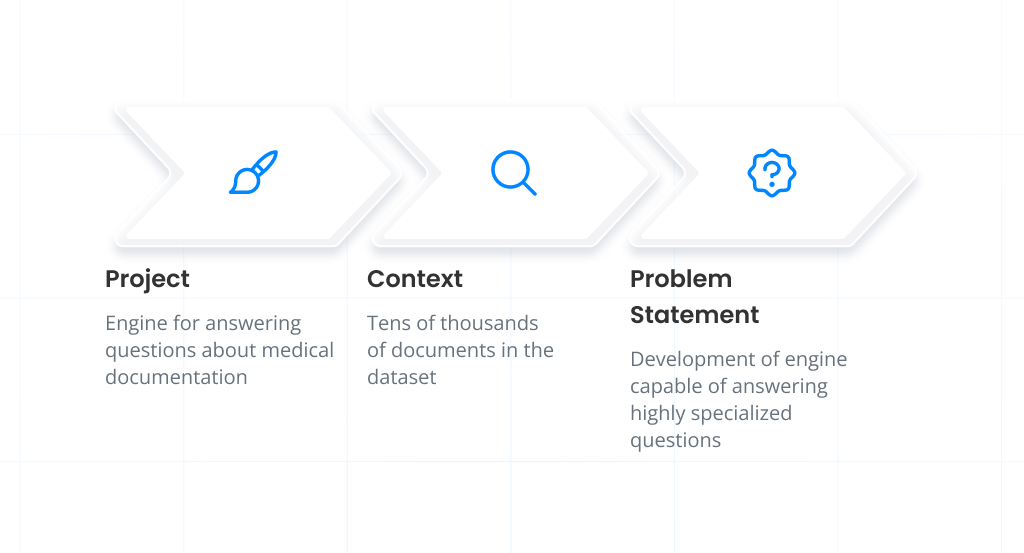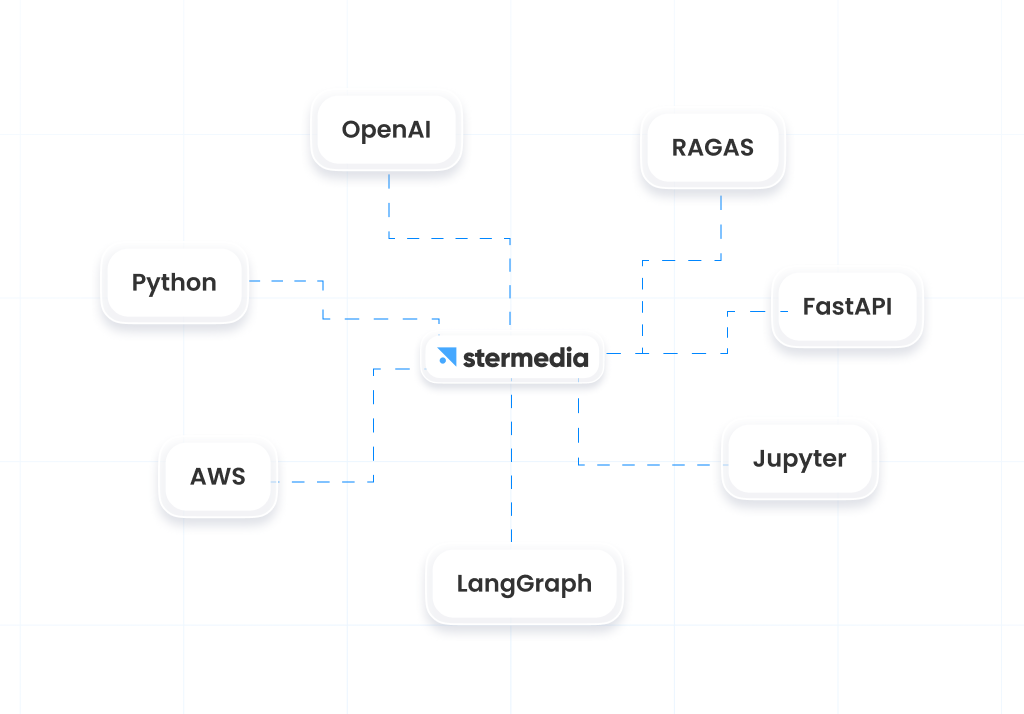As part of our ongoing AI in Healthcare services, Stermedia partnered with a healthcare technology company to create an intelligent, domain-specific question-answering (QA) engine. The goal was to enable healthcare professionals and non-experts alike to search large volumes of complex medical documentation using natural language. The system needed to deliver accurate, explainable answers with referenced sources.
This initiative addressed a growing need in the healthcare sector: transforming dense, unstructured clinical data into accessible knowledge through advanced AI solutions.

Client Context
The client, operating in the medical technology space, maintained a vast internal library of research documents, clinical protocols, and regulatory guidelines. Many of these documents exceeded 100 pages and were written in highly technical language, making them difficult to navigate without specialist knowledge. Their team needed a solution that could surface key insights quickly and reliably—without relying on traditional keyword search tools or time-consuming manual review.
Project Challenge
The project demanded more than just a typical chatbot or search bar. We were tasked with developing a solution capable of understanding medical language, processing and indexing thousands of semi-structured documents, and responding with high precision. Each answer needed to be supported by verifiable source citations—an essential requirement in medical and regulated industries.
In addition, the system had to:
- Filter out irrelevant or off-topic queries
- Support a wide range of user types, from clinicians to administrative staff
- Deliver an intuitive, responsive user experience
- Scale to handle regular use in real-world healthcare workflows
Our Solution: AI in Healthcare for Smarter Knowledge Access
Stermedia designed and implemented a custom AI-powered QA system built on a modular, agent-based architecture. The solution leveraged OpenAI’s large language models (LLMs) orchestrated via the LangGraph framework. To handle the large and highly technical document corpus, we deployed a retrieval-augmented generation (RAG) pipeline enhanced with vector search capabilities.
The process included:
- Document preprocessing – splitting the content into semantic chunks and tagging each with metadata.a.
- Vector embeddings – storing these chunks in a vector database hosted on AWS for fast, relevant retrieval.
- Agent coordination – using specialized agents for query validation, document retrieval, comparison, summarization, and final answer formulation.
- Source transparency – delivering answers with clear citations (document name and paragraph), enhancing both trust and traceability.
To ensure quality and compliance, we evaluated the system using both automated tools (including RAGAS) and manual expert review in close collaboration with the client’s domain specialists.
Technology Stack for AI in Healthcare
- Languages & Frameworks: Python, FastAPI, Jupyter
- AI Models & Tools: OpenAI API (GPT-4 & embeddings), LangGraph, RAGAS
- Infrastructure: AWS-hosted vector database

Business Outcome
The delivered solution allowed the client to transform a static archive of medical documents into a dynamic, searchable knowledge base. Users can now ask natural-language questions and receive answers that are not only accurate, but also directly sourced and verifiable. This drastically reduced the time required to locate relevant content and improved knowledge access across departments.
This project laid a scalable foundation for further AI in Healthcare use in the client’s platform. It also positioned them as a forward-thinking player in digital healthcare. The flexible, explainable, and extensible architecture supports future growth and new AI applications.
If you’re looking to build domain-specific AI tools in healthcare or other regulated industries, explore our AI in Healthcare case study and see how we help transform medical data into actionable insights.



